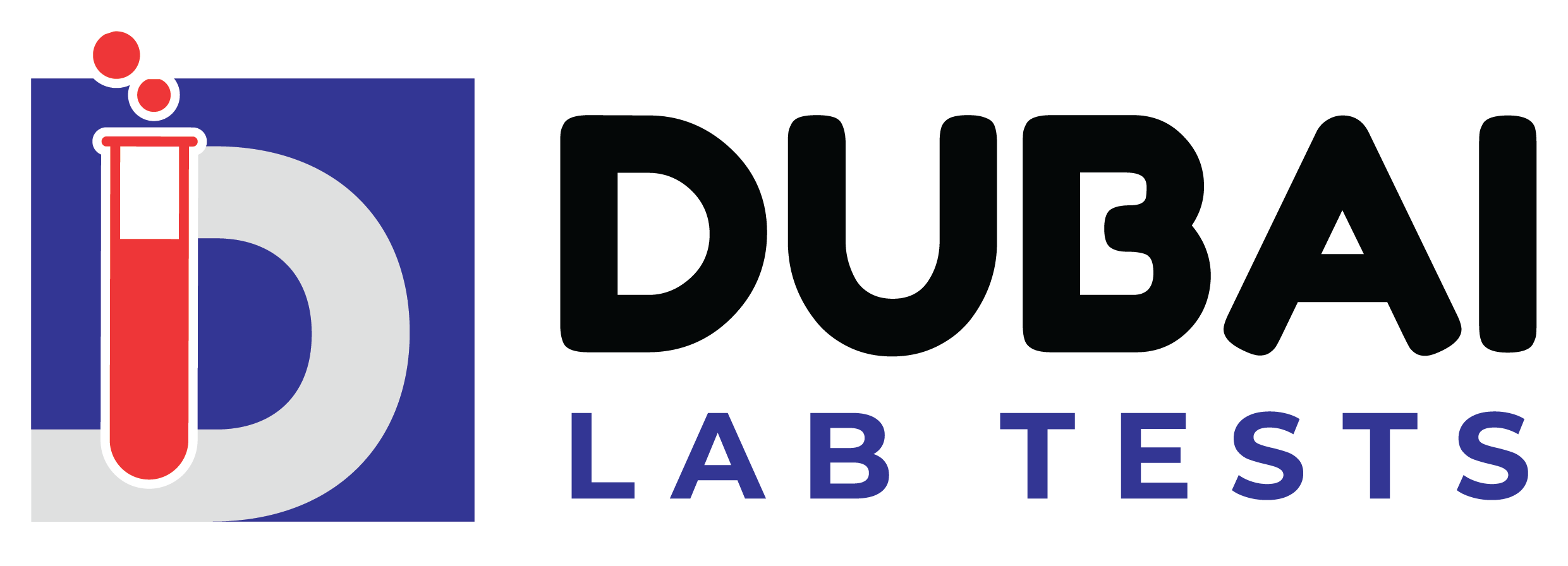There’s a growing awareness of the impact hidden food intolerances can have on our health. Testing for these intolerances is imperative in identifying the root cause of various symptoms such as bloating, skin issues, fatigue, and digestive issues. Ignoring these intolerances can lead to serious health implications and affect our overall well-being. Understanding the importance of testing for food intolerances can empower individuals to make informed decisions about their diet and health, ultimately leading to a healthier and happier life.
Key Takeaways:
- Hidden food intolerances can cause various health issues: Symptoms of food intolerances can be subtle and difficult to identify, affecting different systems in the body.
- Testing is crucial for accurate diagnosis: Comprehensive testing can help pinpoint specific food intolerances, providing clarity on which foods to avoid.
- Elimination diets may not be enough: While elimination diets can be helpful, testing can offer a more precise and efficient way to determine intolerances.
- Improving quality of life: Identifying and managing food intolerances can lead to reduced symptoms, improved digestion, and overall better health and well-being.
- Consulting healthcare professionals: Working with healthcare providers and nutritionists can guide individuals in testing for food intolerances and creating a suitable dietary plan.

The Prevalence of Hidden Food Intolerances
As awareness around food intolerances continues to grow, it is becoming increasingly evident that many individuals may be unknowingly experiencing adverse reactions to certain foods. The prevalence of hidden food intolerances is more common than one might think, with symptoms often masked or attributed to other health issues. Understanding the common culprits and silent symptoms of food intolerances is crucial in uncovering these hidden triggers and improving overall well-being.
Common Culprits: Gluten, Dairy, and More
Common food intolerances include gluten, dairy, and various other ingredients found in everyday foods. Gluten intolerance, also known as celiac disease or non-celiac gluten sensitivity, can lead to digestive issues, fatigue, and even neurological symptoms. Dairy intolerance, characterized by an inability to digest lactose, can cause bloating, gas, and gastrointestinal discomfort. Identifying these common culprits through testing can be key in managing symptoms and optimizing health.
Silent Symptoms: How Intolerances Can Go Unnoticed
The insidious nature of food intolerances lies in their ability to manifest as silent symptoms, flying under the radar and often going unnoticed. While some individuals may experience immediate and severe reactions to trigger foods, others may only exhibit subtle signs such as fatigue, brain fog, or skin issues. Ignoring these silent symptoms can lead to long-term health consequences and decreased quality of life. Recognizing the subtle ways in which intolerances can present is paramount in addressing underlying issues and restoring balance to the body.
Plus, undiagnosed food intolerances can contribute to chronic inflammation, nutrient deficiencies, and autoimmune conditions. By uncovering hidden food intolerances and eliminating trigger foods, individuals can experience relief from troublesome symptoms, improve digestion and nutrient absorption, and boost overall health and vitality. Investing in testing for food intolerances is a proactive step towards better understanding one’s body and promoting long-term wellness.
The Consequences of Untreated Food Intolerances
There’s Food Sensitivity Testing Fort Collins can offer to help individuals identify and address potential food intolerances. Ignoring or not properly managing food sensitivities can lead to a range of negative consequences on one’s health and overall well-being.
Digestive Issues: Bloating, Pain, and Discomfort
An untreated food intolerance can manifest in various digestive issues such as bloating, abdominal pain, and discomfort. These symptoms can often be mistaken for other gastrointestinal conditions, leading to misdiagnosis and ineffective treatment. The ongoing inflammation caused by consuming trigger foods can also damage the intestinal lining and disrupt the gut microbiome, further exacerbating digestive problems.
Systemic Effects: Fatigue, Skin Rashes, and More
Digestive discomfort is not the only consequence of untreated food intolerances. Undiagnosed sensitivities can trigger systemic effects throughout the body, including fatigue, skin rashes, joint pain, and headaches. These symptoms may seem unrelated to food but can be directly linked to the body’s inflammatory response triggered by intolerant foods. Over time, chronic inflammation from unaddressed food intolerances can contribute to more serious health conditions if left unchecked.
The systemic effects of food intolerances are often overlooked or attributed to other causes, delaying proper diagnosis and treatment. It is vital to consider the role of food sensitivities in these symptoms and seek testing to uncover any hidden triggers that may be impacting your health.
Why Testing Is Crucial
Elimination Diets: A Trial-and-Error Approach
For individuals struggling with unknown food intolerances, commenceing on an elimination diet can seem like a logical first step. This method involves removing common allergens like gluten, dairy, soy, and nuts from the diet and then slowly reintroducing them to see how the body reacts. While this approach can be effective for some, it can be challenging and time-consuming. Additionally, it may not always pinpoint the precise intolerances, leading to frustration and continued symptoms.
Blood Tests and Other Diagnostic Tools
Elimination diets can be helpful, but they are not foolproof. With the advancement of medical technology, blood tests and other diagnostic tools have become valuable resources in uncovering hidden food intolerances. These tests can identify specific antibodies that the body produces in response to particular foods, providing a clearer picture of what may be causing symptoms. This method is quicker, more accurate, and less cumbersome than trial-and-error approaches like elimination diets.
Types of Food Intolerance Tests
Once again, it’s crucial to understand that testing for food intolerances can be crucial in identifying and managing potential health issues. There are several types of tests available to pinpoint specific food intolerances and sensitivities. Here are some common methods of testing for food intolerances:
| IgG and IgE Antibody Tests | Stool Tests and Gut Health Analysis |
| Breath Tests and Lactose Intolerance |
IgG and IgE Antibody Tests
The IgG and IgE antibody tests are commonly used to detect food intolerances by measuring the levels of immunoglobulins in the blood. IgG antibodies are associated with delayed food reactions, while IgE antibodies are linked to immediate hypersensitivity reactions. These tests can help identify specific trigger foods that may be causing symptoms such as bloating, headaches, or skin issues.
Stool Tests and Gut Health Analysis
Stool tests and gut health analysis can provide valuable insights into the health of your digestive system. These tests can detect imbalances in gut bacteria, inflammation, and malabsorption issues that may be contributing to food intolerances. Stool tests are particularly useful for identifying conditions such as leaky gut syndrome and irritable bowel syndrome (IBS).
To get a comprehensive overview of your gut health, it is crucial to consider undergoing a stool test and gut health analysis. These tests can help identify underlying issues that may be impacting your digestion and overall well-being. By addressing any imbalances or infections in the gut, you can work towards improving your food tolerances and reducing symptoms of discomfort and inflammation.
Breath Tests and Lactose Intolerance
Breath tests are commonly used to diagnose lactose intolerance by measuring the hydrogen levels in the breath after consuming lactose. This non-invasive test can help determine if you have difficulties digesting lactose, a sugar found in dairy products. Identifying lactose intolerance is crucial for avoiding discomfort and digestive issues related to dairy consumption.
It is important to consider undergoing a breath test if you suspect you may have lactose intolerance. Identifying this condition can help you make necessary dietary adjustments to avoid symptoms such as bloating, gas, and diarrhea that may occur after consuming dairy products. Early detection of lactose intolerance can significantly improve your quality of life and digestive comfort.

Interpreting Test Results
What Do the Numbers Mean?
The results of food intolerance tests can often be overwhelming and confusing. The key is to remember that each person’s body is unique, and what may be a problematic food for one individual may not be an issue for another. High numbers on a food intolerance test indicate a stronger likelihood of an adverse reaction to that particular food. Low numbers, on the other hand, may suggest a milder reaction or tolerance to that food. It’s imperative to work with a healthcare professional to properly interpret these results and create a personalized plan moving forward.
Working with a Healthcare Professional
One of the most crucial aspects of dealing with food intolerances is collaborating with a healthcare professional. A knowledgeable healthcare provider can help you navigate the complex world of food intolerances, interpret test results accurately, and provide guidance on making necessary dietary changes. By working together with a healthcare professional, you can develop a comprehensive plan to address your food intolerances and improve your overall health and well-being.
What’s more, a healthcare professional can offer support and guidance throughout your journey of uncovering and managing hidden food intolerances. They can help you identify trigger foods, create meal plans, and monitor your progress to ensure that you are on the right path to optimal health.
Lifestyle Changes for Managing Food Intolerances
Dietary Adjustments: Elimination and Rotation
After identifying food intolerances through testing, lifestyle changes are necessary to manage symptoms effectively. Dietary adjustments such as elimination and rotation are commonly recommended strategies. Elimination involves removing trigger foods from your diet entirely for a period of time, allowing your body to heal. Rotation entails varying your diet so that you are not consuming the same foods every day, reducing the risk of developing new intolerances.
Nutritional Supplements and Probiotics
On top of dietary adjustments, incorporating nutritional supplements and probiotics can support gut health and overall well-being. Supplements like digestive enzymes, vitamin D, and omega-3 fatty acids can aid in digestion and reduce inflammation. Probiotics, also known as good bacteria, help maintain a healthy balance in the gut and support immune function.
To address nutrient deficiencies and promote a diverse gut microbiome, consulting with a healthcare provider or registered dietitian is necessary to determine the most suitable supplements for your individual needs. Always opt for high-quality supplements from reputable brands to ensure efficacy and safety.
Stress Management and Gut Health
Rotation can play a vital role in managing food intolerances, as stress has been linked to gut health and inflammation. Stress management techniques such as meditation, yoga, deep breathing exercises, and regular physical activity can help improve digestion and reduce symptoms. Incorporating relaxation practices into your daily routine can positively impact your overall well-being and gut health.
Healthcare providers specialized in integrative or functional medicine can provide guidance on stress management strategies tailored to your needs, enhancing the effectiveness of your food intolerance management plan.
To wrap up
On the whole, uncovering hidden food intolerances through testing is crucial for improving one’s overall health and well-being. By identifying and eliminating trigger foods, individuals can experience relief from symptoms such as bloating, fatigue, skin issues, and more. Testing can provide valuable insight into how certain foods may be negatively impacting one’s body, allowing for targeted dietary changes that can lead to significant improvements in quality of life.
It’s important to remember that everyone is unique, and what works for one person may not work for another. Testing for food intolerances can help individuals personalize their approach to nutrition and make informed decisions about their diet. By taking control of their food choices and listening to their bodies, individuals can uncover hidden intolerances and strive towards better health and vitality.
FAQ
Q: What are hidden food intolerances?
A: Hidden food intolerances refer to adverse reactions to specific foods that may not be immediately apparent or easily identifiable. These reactions can manifest as digestive issues, skin problems, headaches, and other symptoms.
Q: How can hidden food intolerances impact health?
A: Hidden food intolerances can have a significant impact on health by causing chronic inflammation, disrupting gut health, compromising nutrient absorption, and triggering various systemic symptoms. Identifying and addressing these intolerances is crucial for overall well-being.
Q: What are common signs and symptoms of hidden food intolerances?
A: Common signs and symptoms of hidden food intolerances include bloating, gas, diarrhea, constipation, fatigue, brain fog, joint pain, skin rashes, headaches, and mood disturbances. These symptoms are often vague and can overlap with other health issues.
Q: Why is testing important for uncovering hidden food intolerances?
A: Testing is important for uncovering hidden food intolerances because it provides valuable insights into specific foods that may be triggering symptoms. Elimination diets and food journals can be helpful, but testing offers a more precise and efficient way to identify problem foods.
How can one get tested for hidden food intolerances?
A: There are various testing methods available for identifying hidden food intolerances, including blood tests, IgG antibody tests, elimination-challenge diets, and functional medicine tests. Consulting with a healthcare provider or a registered dietitian can help determine the most appropriate testing approach.



